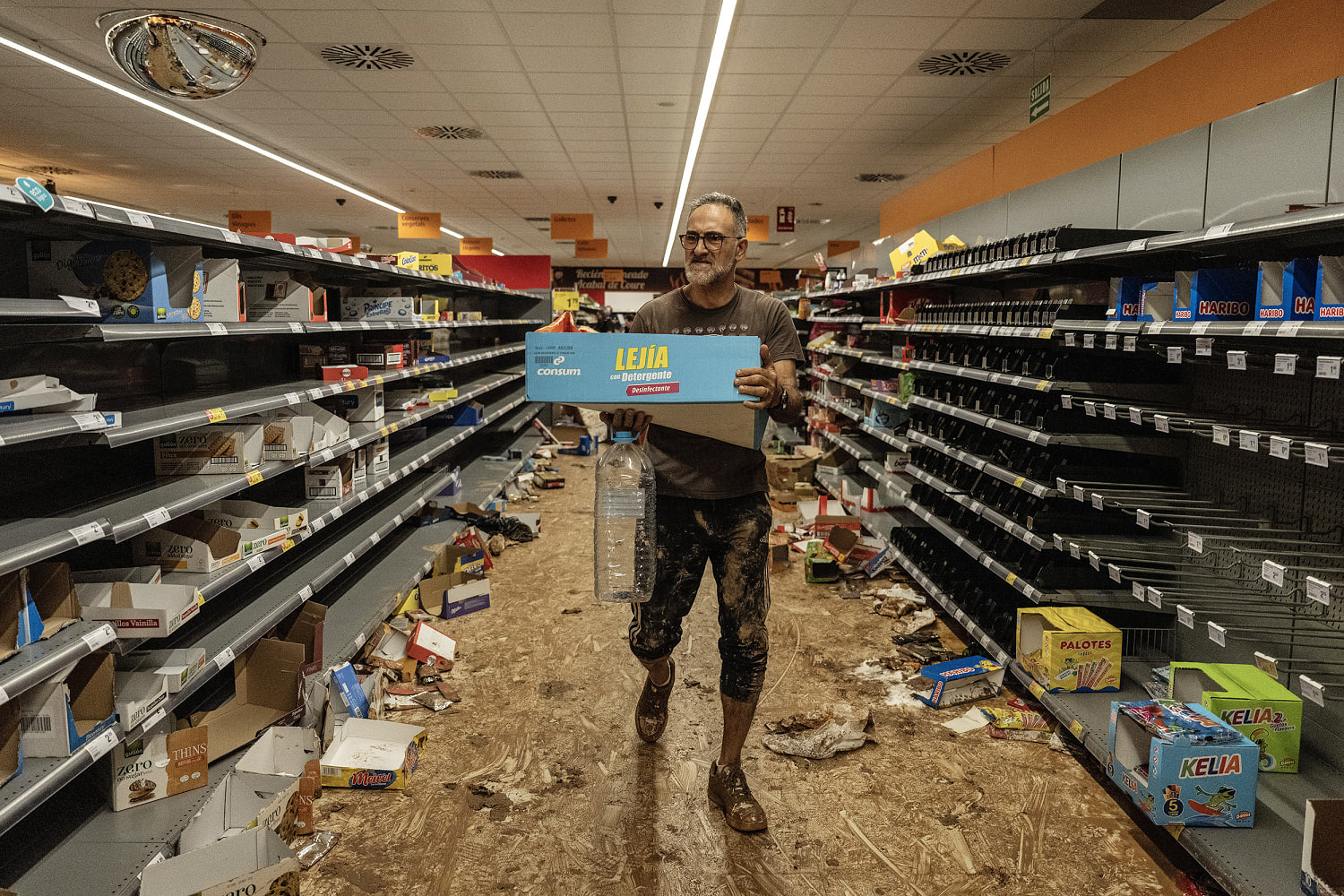
The massive number of dead — easily making the floods the worst natural disaster in Spain in living memory — has raised questions about how this could happen in a European Union country that excels in public safety.
As rescuers continued to pull bodies from the mud and debris Thursday, anger also began to grow among the families and friends mourning lost loved ones and many more thousands whose livelihoods have been shattered by the deluge. The streets were full of people walking to procure basic supplies with their cars ruined and the streets undrivable because of the mud and debris.
The Valencian regional government is being criticized for not sending out flood warnings to mobile phones until 8 pm on Tuesday, when the flooding had already started in some places and well after the national weather agency issued a red alert indicating heavy rains.
Valencia regional President Carlos Mazón, of the conservative Popular Party, defended his administration’s management of the crisis, saying “all our supervisors followed the standard protocol” that was coordinated by Spain’s central government.
Spain’s Interior Ministry said in a statement that regional administrations are responsible for sending alerts to warn the population of possible flooding and other natural disasters.
Mazón is also under fire for his announcement at 1:00 pm on Tuesday that the storm front would “lose strength” by 6:00 pm The opposite occurred.
The size and violence of the extreme weather event was shocking and extremely difficult for any administration to prepare for and predict. But Valencia, on Spain’s Mediterranean coast, has a history of autumn storms that produce floods, albeit at a smaller magnitude than this monster of a storm.

